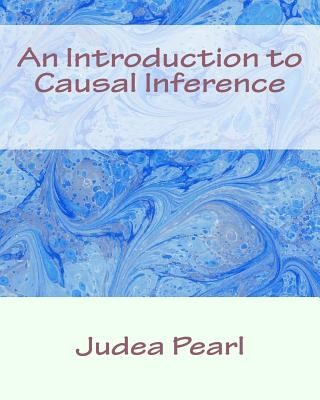
- Išsiųsime per 12–18 d.d.
- Autorius: Judea Pearl
- Leidėjas: CreateSpace Independent Publishing Platform
- ISBN-10: 1507894295
- ISBN-13: 9781507894293
- Formatas: 20.3 x 25.4 x 0.5 cm, minkšti viršeliai
- Kalba: Anglų
- Extra -25 % nuolaida šiai knygai su kodu: ENG25
Atsiliepimai
Aprašymas
This book summarizes recent advances in causal inference and underscores the paradigmatic shifts that must be undertaken in moving from traditional statistical analysis to causal analysis of multivariate data. Special emphasis is placed on the assumptions that underlie all causal inferences, the languages used in formulating those assumptions, the conditional nature of all causal and counterfactual claims, and the methods that have been developed for the assessment of such claims. These advances are illustrated using a general theory of causation based on the Structural Causal Model (SCM), which subsumes and unifies other approaches to causation, and provides a coherent mathematical foundation for the analysis of causes and counterfactuals. In particular, the paper surveys the development of mathematical tools for inferring (from a combination of data and assumptions) answers to three types of causal queries: those about (1) the effects of potential interventions, (2) probabilities of counterfactuals, and (3) direct and indirect effects (also known as "mediation"). Finally, the paper defines the formal and conceptual relationships between the structural and potential-outcome frameworks and presents tools for a symbiotic analysis that uses the strong features of both. The tools are demonstrated in the analyses of mediation, causes of effects, and probabilities of causation.
EXTRA 25 % nuolaida su kodu: ENG25
Akcija baigiasi už 6d.12:25:44
Nuolaidos kodas galioja perkant nuo 10 €. Nuolaidos nesumuojamos.

- Autorius: Judea Pearl
- Leidėjas: CreateSpace Independent Publishing Platform
- ISBN-10: 1507894295
- ISBN-13: 9781507894293
- Formatas: 20.3 x 25.4 x 0.5 cm, minkšti viršeliai
- Kalba: Anglų Anglų
This book summarizes recent advances in causal inference and underscores the paradigmatic shifts that must be undertaken in moving from traditional statistical analysis to causal analysis of multivariate data. Special emphasis is placed on the assumptions that underlie all causal inferences, the languages used in formulating those assumptions, the conditional nature of all causal and counterfactual claims, and the methods that have been developed for the assessment of such claims. These advances are illustrated using a general theory of causation based on the Structural Causal Model (SCM), which subsumes and unifies other approaches to causation, and provides a coherent mathematical foundation for the analysis of causes and counterfactuals. In particular, the paper surveys the development of mathematical tools for inferring (from a combination of data and assumptions) answers to three types of causal queries: those about (1) the effects of potential interventions, (2) probabilities of counterfactuals, and (3) direct and indirect effects (also known as "mediation"). Finally, the paper defines the formal and conceptual relationships between the structural and potential-outcome frameworks and presents tools for a symbiotic analysis that uses the strong features of both. The tools are demonstrated in the analyses of mediation, causes of effects, and probabilities of causation.




Atsiliepimai